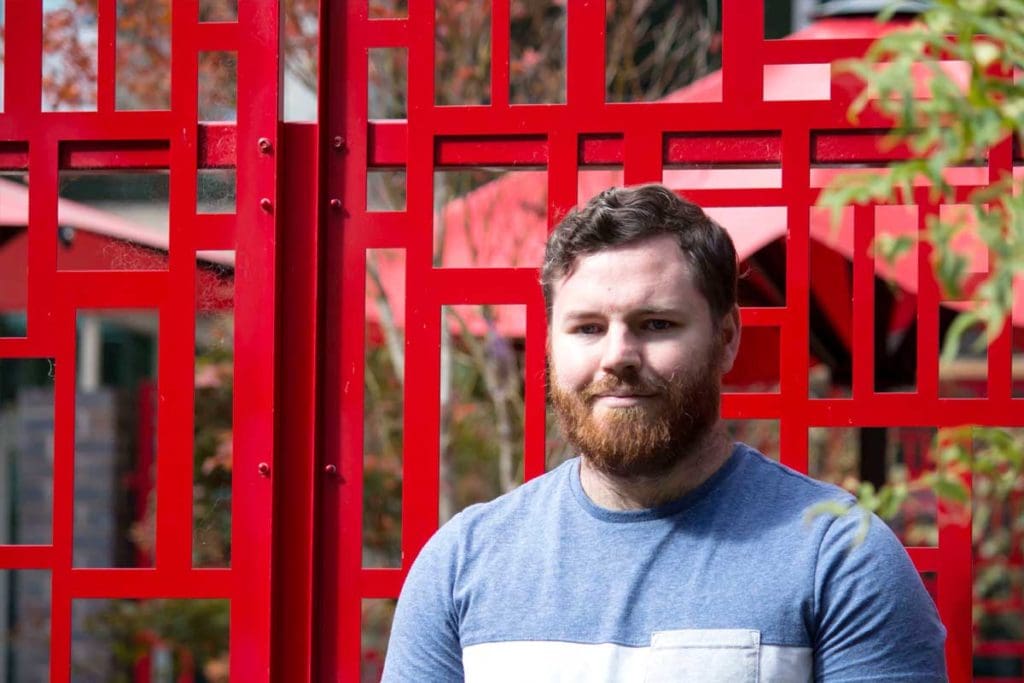Leading Pedal Power Down the Path for More Visible Advocacy

Canberra, ACT
Strong demonstrations of support for government commitments to active transport infrastructure, and the politicians who commit those funds, will be a high priority for the new head of the ACT’s peak cycling advocacy group.
“We have to make government see that announcements on active transport infrastructure are just as popular as road projects.”
The newly appointed Pedal Power ACT executive director, Simon Copland, says it’s vital government and communities see and hear from supporters of active and public transport developments, to counter the inevitable angry voices from people who protest every time funds are dedicated to infrastructure that isn’t roads and transportation by car.
Simon, an amateur powerlifter and self-confessed sports obsessive, said one of his top priorities will be raising the bar for active transport infrastructure in the ACT.
While that push will include close interaction with other organisations and building strong relationships with politicians, it will also involve changing the narratives whenever active transport projects are announced.
“We have to make government see that announcements on active transport infrastructure are just as popular as road projects,” he said.
“Part of that is building support where we know it already exists and making it more vocal. We need to work with people we’ve already got on board, to change the discourse around those announcements, then really build on that.”
He said advocacy groups such as Pedal Power cannot rely primarily on submissions and internal policy work. It was equally important to generate highly visible support out in the community.
“One of the issues we have in Canberra, and it’s true in many cities and in the country, is we have a very vocal group of people who are very connected to their cars and really push back against any investment to infrastructure that is not roads,” he said.
“What’s clear from the research is that backlash is driven by a relatively small minority, and when you start expanding out to the wider community, people are actually pretty positive about cycling and active transport infrastructure.
“However, the media wants to go with the angry person that’s lost their parking space.”
He said Canberra’s light rail project was a prime example.
“When we had Federal money redirected from road projects that weren’t really happening and shifted it to light rail, the first thing the media did was find some grumpy people who opposed it and put that on the front page, rather than talking to people who were happy that light rail was being built,” he said.
“We need to get voices out there saying ‘yes, active and public transport is what we want government to be investing in’.”
Communications and Advocacy Background
Simon started in the Pedal Power role in mid-October, equipped with a background in political, environmental and social advocacy. He’s recently worked as a writer and communicator in social policy and environmental issues, and as a campaign strategist.
In recent years, he has been employed in various university teaching roles and as a coordinator of non-government climate organisation 350.org, as well as co-editing environmental journal Green Agenda.
He was president of the ANU National Tertiary Education Union Branch in 2020-21 and a member of the ACT LGBTIQ Ministerial Advisory Panel.
“Canberra has done a lot of great work in terms of addressing climate change … but transport is still a big issue we have to tackle.”
In August, he submitted his PhD thesis to the Australian National University, an exploration into the modern phenomenon of online men’s groups and communities dubbed the ‘manosphere’.
A strong advocate for sustainability, he saw the executive director role as an opportunity to address a shortfall in cycling infrastructure, in a Territory which otherwise has a good record with recent measure to address emissions reduction and environmental protection.
“I’ve lived here most of my life and I have frustrations about the quality of infrastructure in Canberra,” he said.
“I’m what I call a casual commuter or recreational cyclist and I have a strong desire to see things improve, not only because cycling is good for people’s physical and mental health, but also because of sustainability.
“Canberra has done a lot of great work in terms of addressing climate change, particularly around energy, but transport is still a big issue we have to tackle when it comes to reducing emissions. Investment in active transport is a core part of that.”
Simon said he will also focused on monitoring the ACT Government’s finalisation and implementation of its Active Travel Plan currently being developed.
He said the draft plan so far is a generally a positive document.
“It proposes a range of things we’re looking for. The real issue is going to be implementation and we have concerns there’s very few timelines and very little investment of money, particularly with infrastructure,” he explained.
“We have very few separated cycleways in Canberra. It’s all painted lines on the roads and we know that’s not the safest way to do things.”
Boosting Pedal Power ACT’s membership will also be a priority.
“Lots of organisations like ours have suffered from membership drops during the pandemic, particularly now people are faced with increasingly costs of living,” he added.
“We will be really working to build the organisation and restore a strong financial base, so we can do the advocacy work and keeping running the events and programs we offer.
“The board has set up a really strong strategic direction for Pedal Power, so I come into the role with a really strong sense of who we are and what to do.
“It’s about doing whatever we can to advance the health and wellbeing of our community, through the safe and convenient use of bicycles.”
Join the Conversation
What should Pedal Power ACT’s top priorities be to improve cycling in the Territory?
